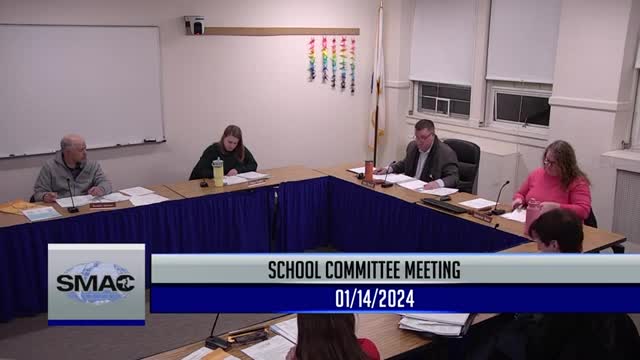Stoughton superintendent warns hotel shelter could raise student transportation costs, strain budget
Get AI-powered insights, summaries, and transcripts
Subscribe
Summary
Superintendent Dr. Raeta told the school committee that sheltering in town may increase homeless-student enrollments and transportation obligations under McKinney-Vento, creating recurring costs the district’s grant awards do not cover.
Stoughton — Superintendent Doctor Raeta told the Stoughton School Committee on Jan. 14 that a recently opened hotel being used as a shelter could raise ongoing transportation costs and other obligations for Stoughton Public Schools.
Raeta said the concern is not only additional student enrollment but that the shelter could “become a homeless homelessness center, because there's also financial implications to that around McKinney Vento,” and the district will not receive ongoing Commonwealth compensation for many of those costs.
Why it matters: Under the federal McKinney-Vento Act, schools must ensure transportation for students experiencing homelessness to remain in their school of origin in many cases. Raeta said that transportation is the district’s biggest cost exposure in the near term and that grant money the district has won covers materials and services but generally cannot be used for salaries or long-term operating costs.
Raeta described recent grant awards and limits: the district received an initial allocation of about $202,000 to backfill costs tied to newcomer students and related needs, and she said the district recently sought an additional $48,000. The district also filed for a $90,000 minivan under a $249,000 grant but reported its request for the vehicle was rejected for now, she said. Raeta said the district still tried “every McKinney-Vento grant available” and is using grant money for translators, liaisons, Chromebooks and furniture, but not to cover recurring personnel expenses.
Raeta warned of examples of unusually high transportation costs when districts split responsibility between sending and receiving districts: “you are not paying, in some cases, $10,000 a month for 1 student to be transported,” she said, describing previous instances where districts faced steep monthly bills for out-of-district transport and noted that the district could be legally obligated to pay half of some outside-transportation bills.
Committee members and staff discussed staffing and enrollment. Mr. Barbosa clarified one staffing item Raeta had mentioned: an RN position for Stoughton High that had been funded out of contract services was moved to a regular position; the money was available but previously in the contract-services line, he said.
The superintendent said shelter enrollment has been “declining pretty much on a daily basis,” but urged the committee to be prepared for the budget and operational implications if the shelter remains or expands. She recommended possible outreach to the town’s elected delegation and noted the district is pursuing grant and budget strategies while preparing to track and respond to any new students who register as homeless.
Ending: Raeta said transportation and personnel costs are the most immediate budget pressures tied to the shelter and that the district will continue to pursue grant funding while asking school leaders and the committee to plan for recurring costs that grants cannot cover.
